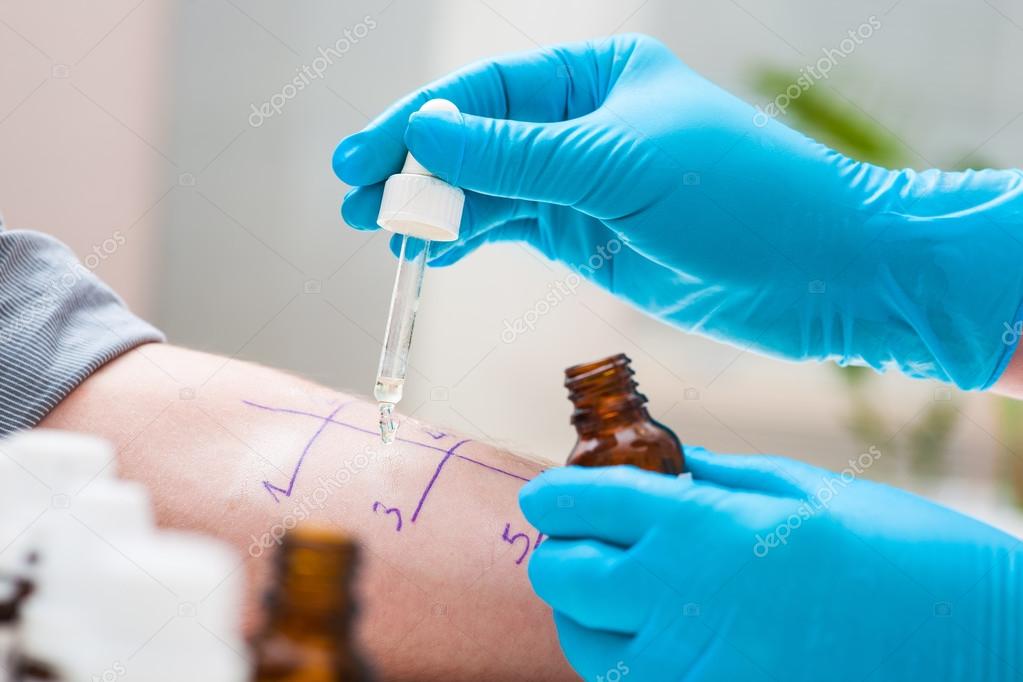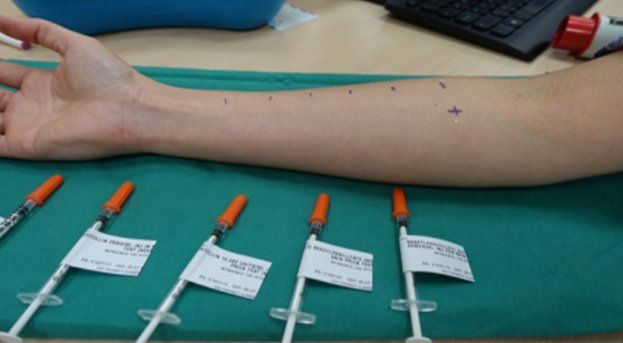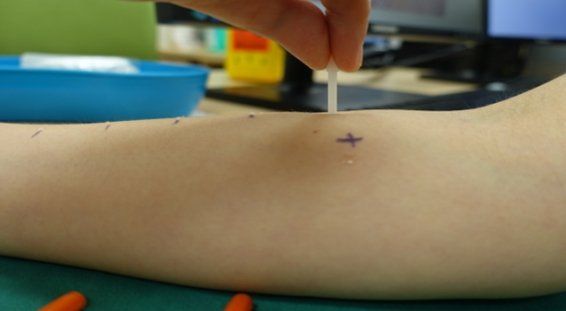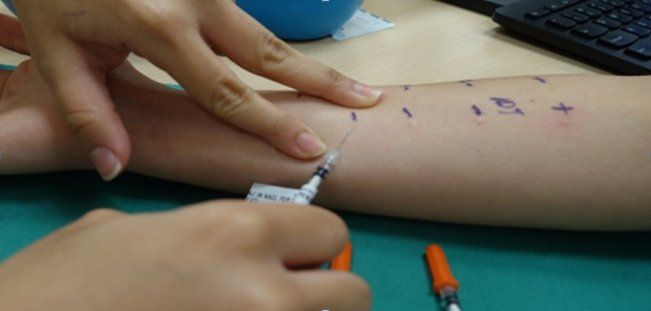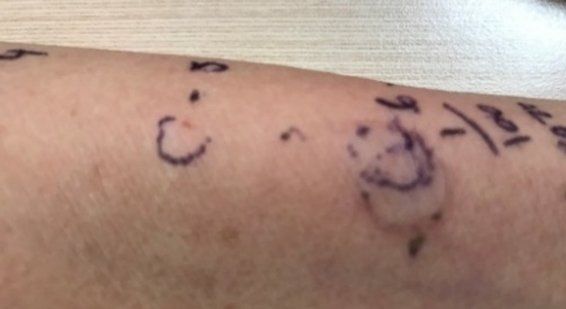Patient Resources
What is a Drug Allergy Testing and how can it help to evaluate my drug allergy?
Why should I undergo drug allergy testing?
Drug allergy testing is done to find out if patient is allergic to a particular drug(s) or not. Reasons for testing can include:
a) excluding a drug allergy label when the previous reaction was unknown or uncertain
b) ascertaining the culprit drug allergy when the reaction happened after taking multiple medications
c) testing for a safe alternative drug when you have a confirmed drug allergy
What tests can I undergo to evaluate drug allergies?
Your allergist will take a detailed drug allergy history in order to assess whether testing is necessary. Some tests that the allergist can perform include:
Skin Prick Testing (SPT) involves pricking the superficial skin layer of the forearm with diluted concentrations of the drug to detect any positive reactions. A positive reaction is seen as a small red, itchy lump (wheal) at the prick site about 15 minutes after the prick is performed.
Intradermal Testing (IDT) is done by injecting a tiny amount of diluted drug using a small needle into the skin to detect any positive (wheal) reactions.
A positive test indicated by a wheal that expands beyond the original injection site
For certain drugs, blood tests to detect antibodies (specific IgE) against the drug can also be performed.
Depending on the type of drug and the results of your skin and/or blood tests, your allergist may offer you a drug challenge.
What is a drug challenge?
A drug challenge is a procedure where the patient is given small incremental doses of a particular drug under medical supervision. Depending on the medication tested, a drug challenge usually lasts 4-6 hours. Your allergist will then be able to update you on the status of your drug allergy.
Are there any risks to a drug challenge?
Before testing, you must be well with no cough, cold or recent infections for at least two weeks before the challenge. If you have asthma or rashes, they must be well controlled and stable. The allergist will prepare you to ensure you are suitable to undergo the drug challenge.
You may develop an allergic reaction to the drug being tested during the challenge. This is why the test is done in hospital and not at home. During the drug challenge, you will be closely monitored and the allergy team will be able to assess and treat any reaction quickly.





